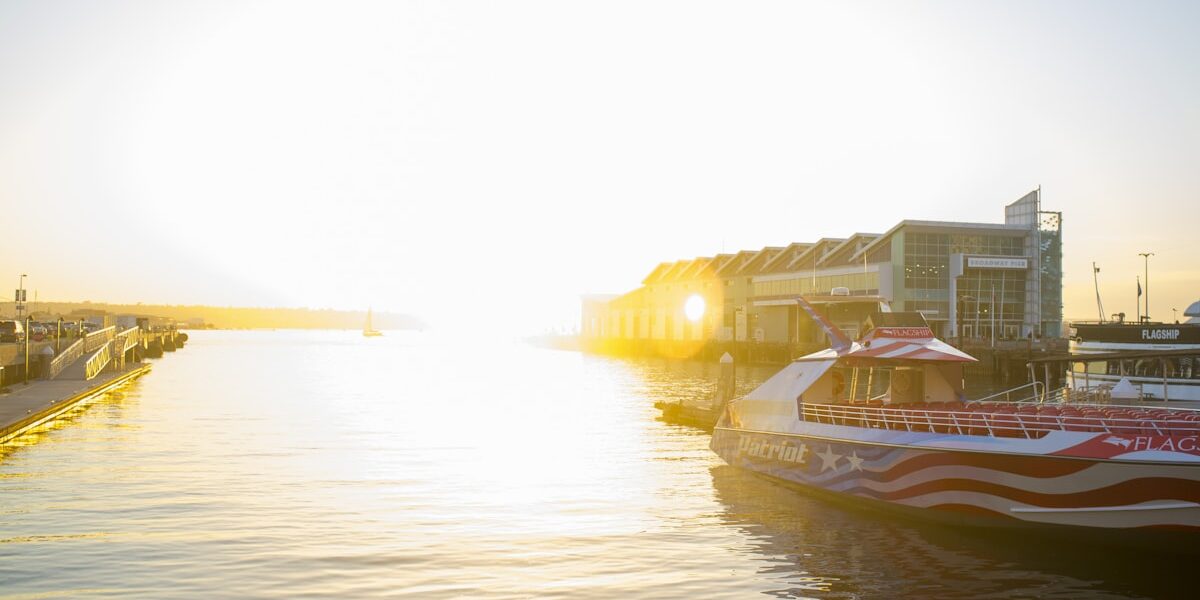Boat Insurance for Older Boats
Owning an older boat comes with its own set of joys and challenges. As much fun as hitting the water can be, ensuring you have the right insurance for your seasoned vessel is crucial. Insurance coverage for older boats differs in significant ways from that of new boats. Let’s explore the key aspects of boat insurance tailored for older boats.

The Need for Specialized Insurance
Insuring an older boat isn’t as straightforward as insuring a new one. Insurance companies consider various factors such as the boat’s condition, age, and history. Older boats might lack modern safety features or might not meet current standards, making them a higher risk. Insurers typically look more closely at older boats, often imposing stricter conditions or higher premiums.
Factors Affecting Insurance Rates
Several factors influence the insurance rates for older boats:
- Age of the Boat: Boats older than 20 years usually see a noticeable increase in insurance premiums. Insurers believe older boats are more likely to have mechanical failures or suffer damage.
- Boat Condition: Regular maintenance and upkeep can positively impact insurance rates. Documented evidence of repairs and upgrades plays a significant role.
- Usage: How and where you use the boat affects insurance. Boats used in freshwater versus saltwater see different rates. Frequent usage can also result in higher premiums.
- Storage: Proper storage during off-season reduces risk. Boats kept in secure facilities might qualify for discounts.
Types of Coverage
There are several types of coverage options available that are essential for older boats:
Agreed Value Policy
This type of policy covers the boat at an agreed-upon value, which doesn’t depreciate over time. If there’s a total loss, the insurance company pays out this agreed value. This is beneficial for older boats because it takes into account the maintained and possibly modified value of the vessel.
Actual Cash Value Policy
This policy pays out based on the boat’s current market value at the time of the claim, accounting for depreciation. It’s cheaper but might not provide enough in the event of a total loss, especially for older boats that have undergone significant upgrades.
Liability Coverage
This is crucial for any boat owner and covers injury or damage you might cause to others. Given that older boats might be more prone to accidents due to wear and tear, having solid liability coverage is wise.
Comprehensive Coverage
This covers non-collision-related damages. Theft, vandalism, and natural disasters fall under comprehensive coverage. It’s particularly important if your boat is stored in an area prone to such risks.
Uninsured/Underinsured Boater Coverage
Protects you if you’re involved in an accident with an uninsured or underinsured boater. Older boats are at a higher risk and having this coverage can save you significant expenses.
Inspection and Maintenance
Insurance companies often require a survey or inspection for older boats before providing coverage. These surveys provide a detailed condition assessment of the boat. Regular maintenance and documented upgrades can tip the scales in your favor when negotiating rates. Keep a log of all repairs, replacements, and upgrades made over the years.
Finding the Right Insurer
Not all insurers offer policies for older boats. When looking for insurance, it’s essential to choose a company familiar with older vessels. Companies specializing in marine insurance usually understand the intricacies involved and provide more suitable options. Compare quotes from multiple insurers and read reviews to gauge the reliability and support they offer.
Local Knowledge
Choosing an insurer with local knowledge can be beneficial. They understand regional risks better, like weather patterns or common regional issues that might not be apparent. Local insurers might also offer better rates or coverage tailored to your specific needs.
Discount Opportunities
There are several ways to reduce insurance premiums for older boats:
- Boating Education: Completing accredited boating courses can sometimes reduce premiums.
- Safety Equipment: Installing up-to-date safety equipment like GPS, radios, and life-saving gear might earn you discounts.
- Bundling Policies: Insurers might offer discounted rates when bundling boat insurance with other types of insurance, like home or auto.
- Clean Claim History: A history of no claims can reward you with lower premiums. Navigate safely and maintain a clean record.
Unique Challenges and Solutions
Older boats present unique challenges when it comes to insurance:
Parts and Repairs
Finding replacement parts for older models can be tricky. Insurers might factor this in, increasing premiums due to higher potential repair costs. Consider joining clubs or online forums for vintage boats. Such communities often have resources for finding rare parts, which can help in repairing and maintaining your boat cost-effectively.
Market Value
Establishing the market value for an older boat can be challenging. Consistent maintenance records, professional appraisals, and keeping up with market trends for similar boats can help establish value when negotiating insurance.
Customization and Upgrades
Modifications made to older boats often need special coverage. Ensure all customizations are documented and discussed with your insurer to avoid any coverage gaps. Upgrades can sometimes lower risks and potentially reduce premiums. Consult with marine specialists to understand how upgrades affect insurance.
Real-Life Examples
Let’s consider a few scenarios to illustrate boat insurance for older boats:
Case 1: Restored Classic Boat
John owns a 30-year-old restored sailboat. He invested significantly in restoring it, including modern electronics and a new engine. He opts for an agreed value policy, ensuring the significant investment is covered. Documenting every upgrade helps in negotiating this coverage.
Case 2: Weekend Warrior
Sarah has a 25-year-old speedboat she uses on weekends. Her boat is in good condition but not extensively upgraded. She chooses an actual cash value policy, accepting depreciation for a lower premium. Given the limited use, she benefits from choosing comprehensive and liability insurance without overextending her budget.
Case 3: Classic Wooden Boat
Mike owns a vintage wooden boat known for its craftsmanship. He joins a vintage boat club for support and parts. Mike’s insurer, familiar with vintage boats, provides a tailored policy addressing his boat’s unique needs and ensuring his classic beauty is well protected.
Navigating Claims
Filing a claim for an older boat can be tricky. Insurers may scrutinize the condition and maintenance records more closely. Keeping detailed, up-to-date records of the boat’s condition, repairs, and upgrades is crucial. Accurate documentation ensures smoother claims processing. Regular communication with your insurer about any changes to the boat’s condition or usage can preempt potential issues.
Online Resources
There are ample resources online that provide insights and support for older boat owners:
- Marine Insurance Websites: Many provide calculators, policy details, and FAQs specific to older boats.
- Forums and Clubs: Communities like forums and boating clubs offer firsthand advice and shared experiences that can be invaluable.
- Government and Regulatory Sites: These sites offer guidelines and regulations that might influence insurance, especially for vintage or classic boats.
Consulting Professionals
For complex cases or high-value older boats, consulting professionals is essential. Marine surveyors, specialized brokers, and marine insurance experts can provide detailed evaluations and navigable paths to secure adequate coverage. Their expertise can uncover insurance nuances that might be missed otherwise.
Keeping Updated With Regulations
Regulations can change. Staying updated with local and national boating laws helps in maintaining compliant, insurable boats. Changes in safety regulations, environmental laws, and other legal shifts can impact your insurance options and requirements. Regularly review these changes and ensure your boat meets current standards to avoid complications when filing claims or renewing policies.
“`



